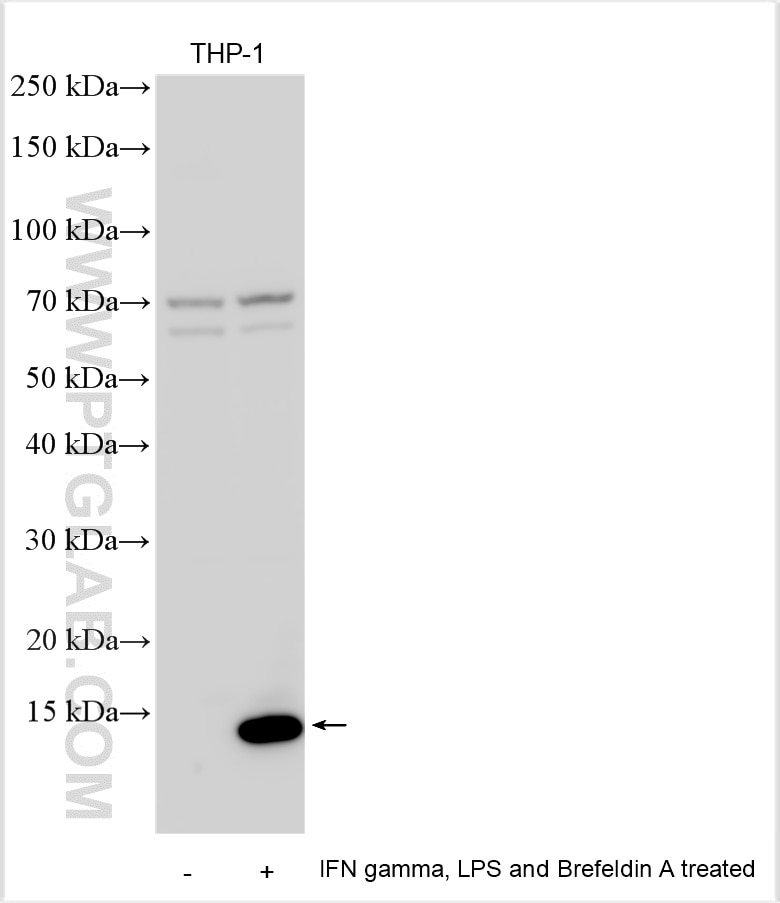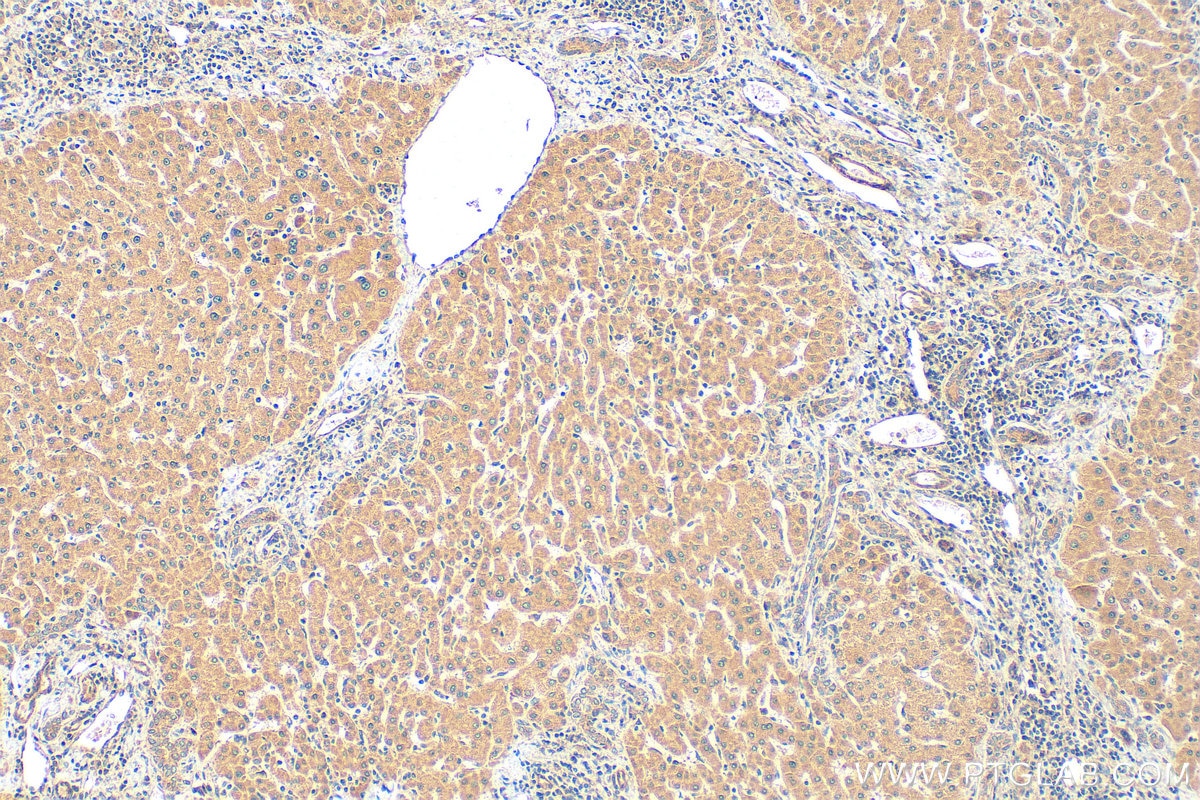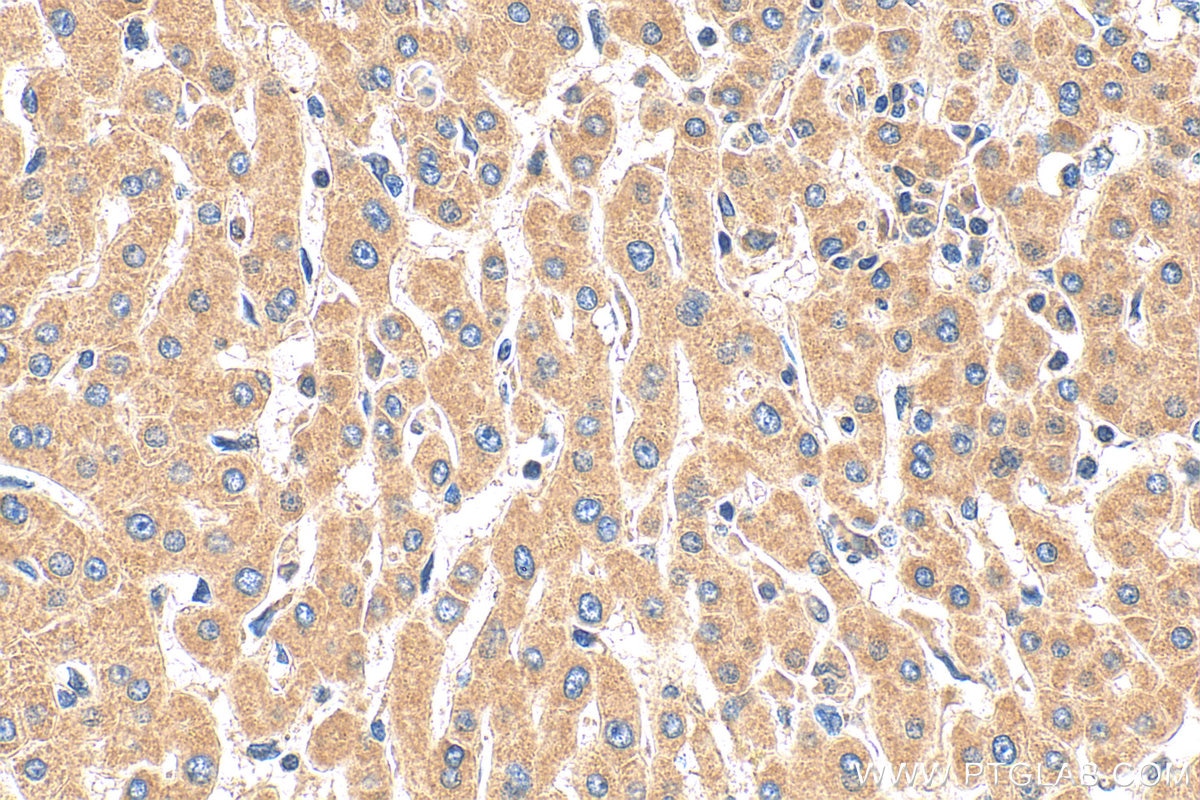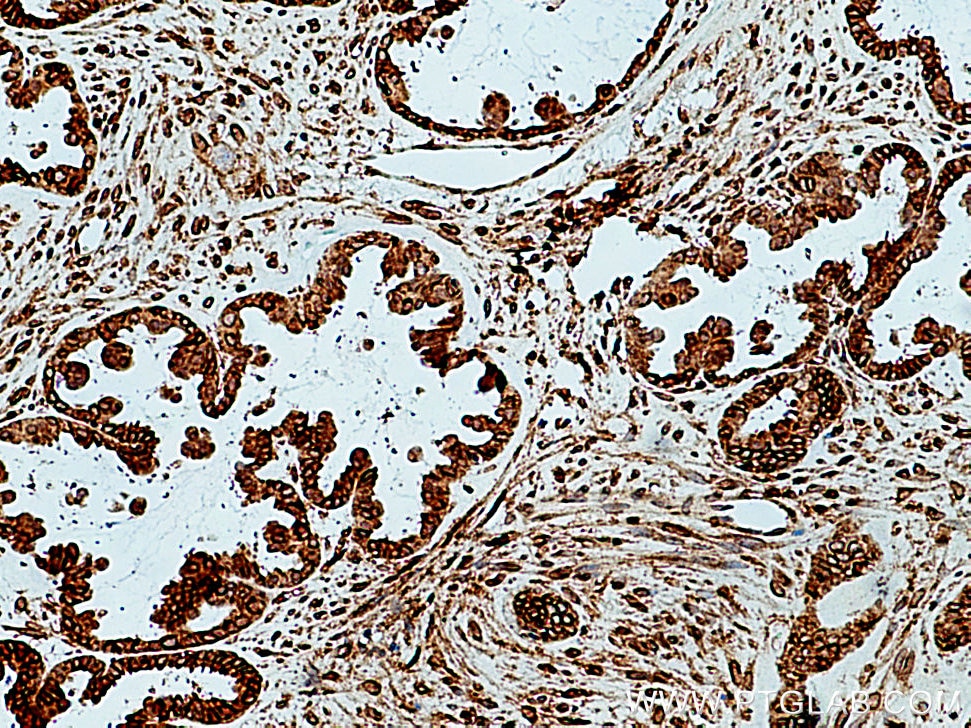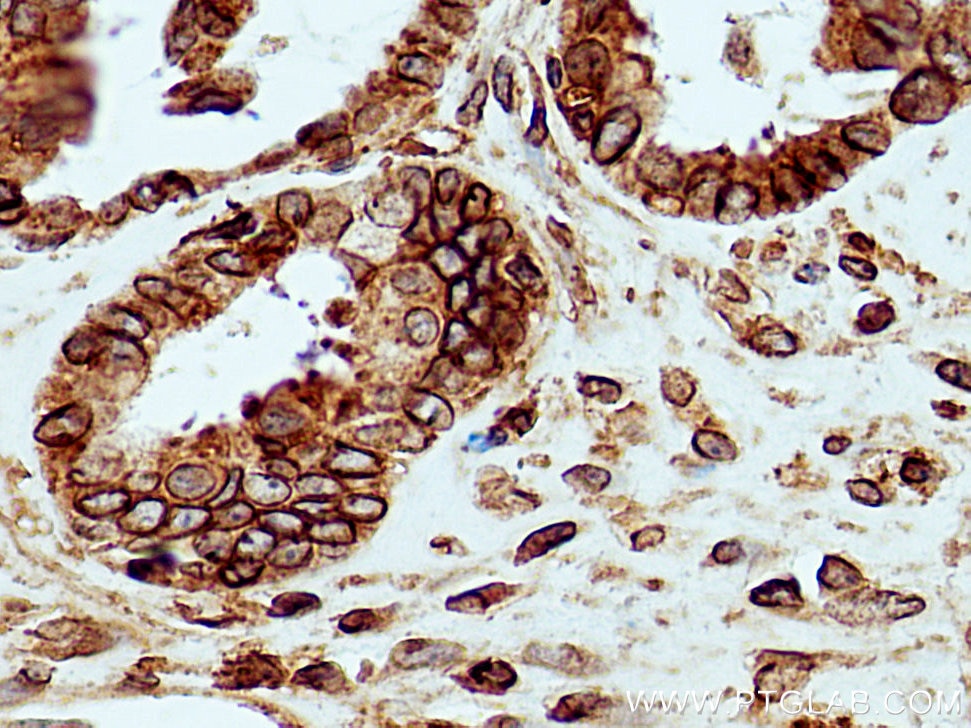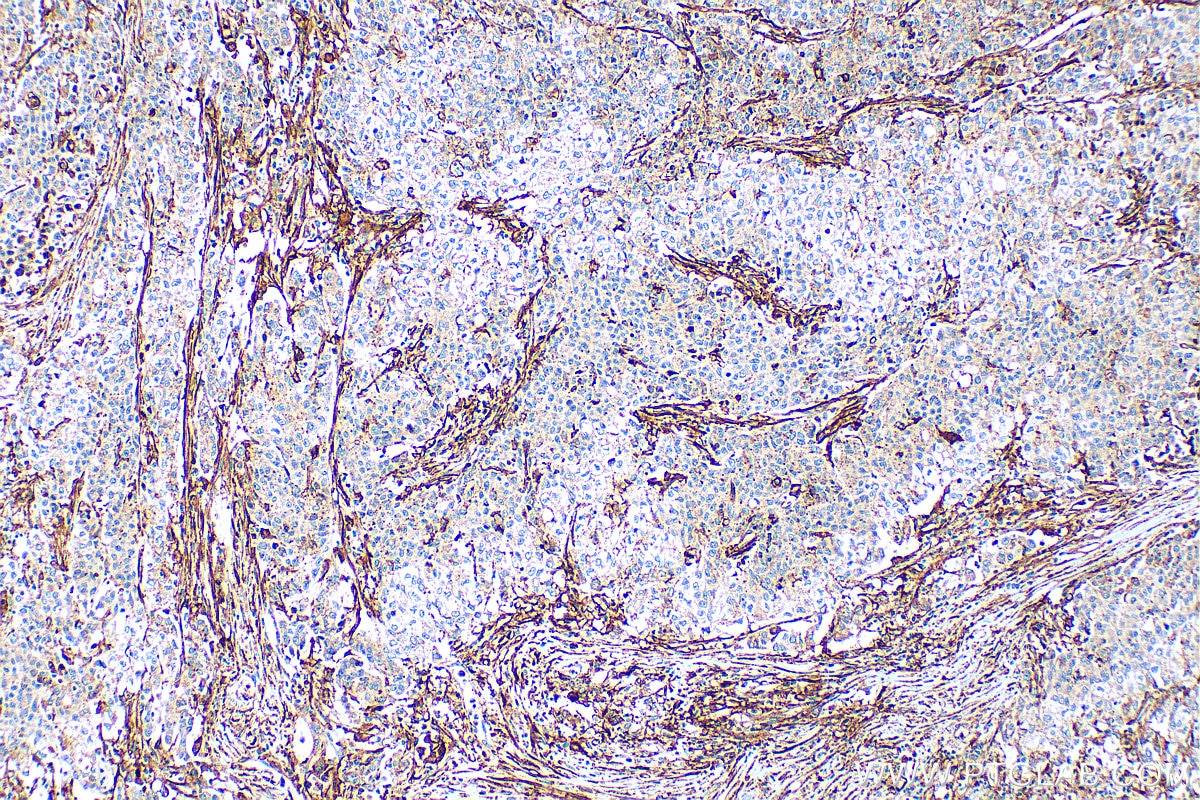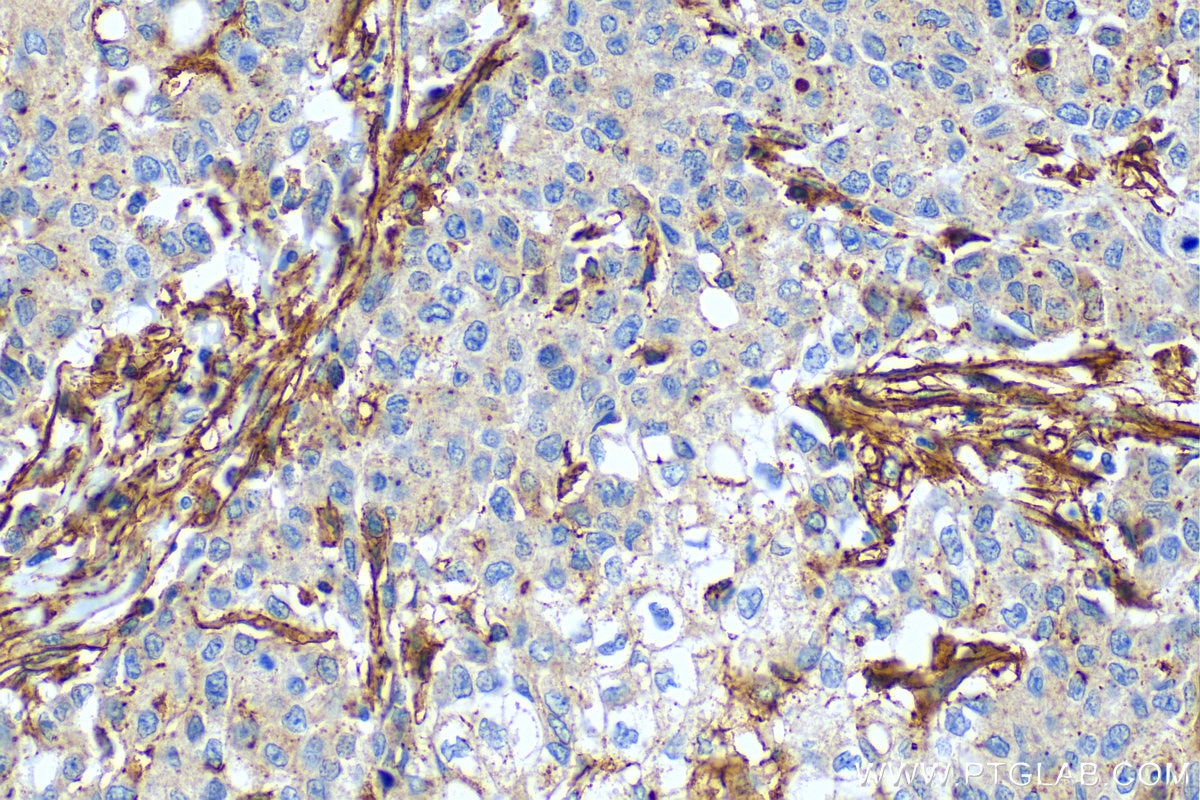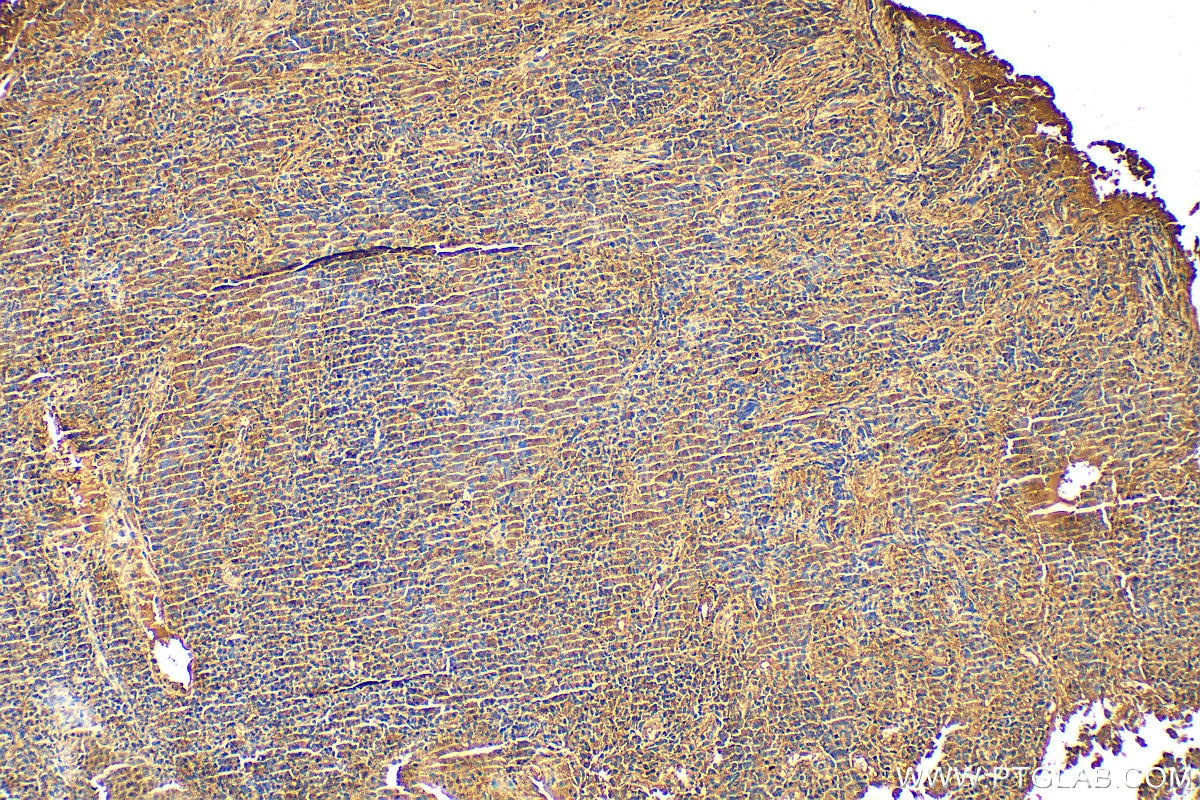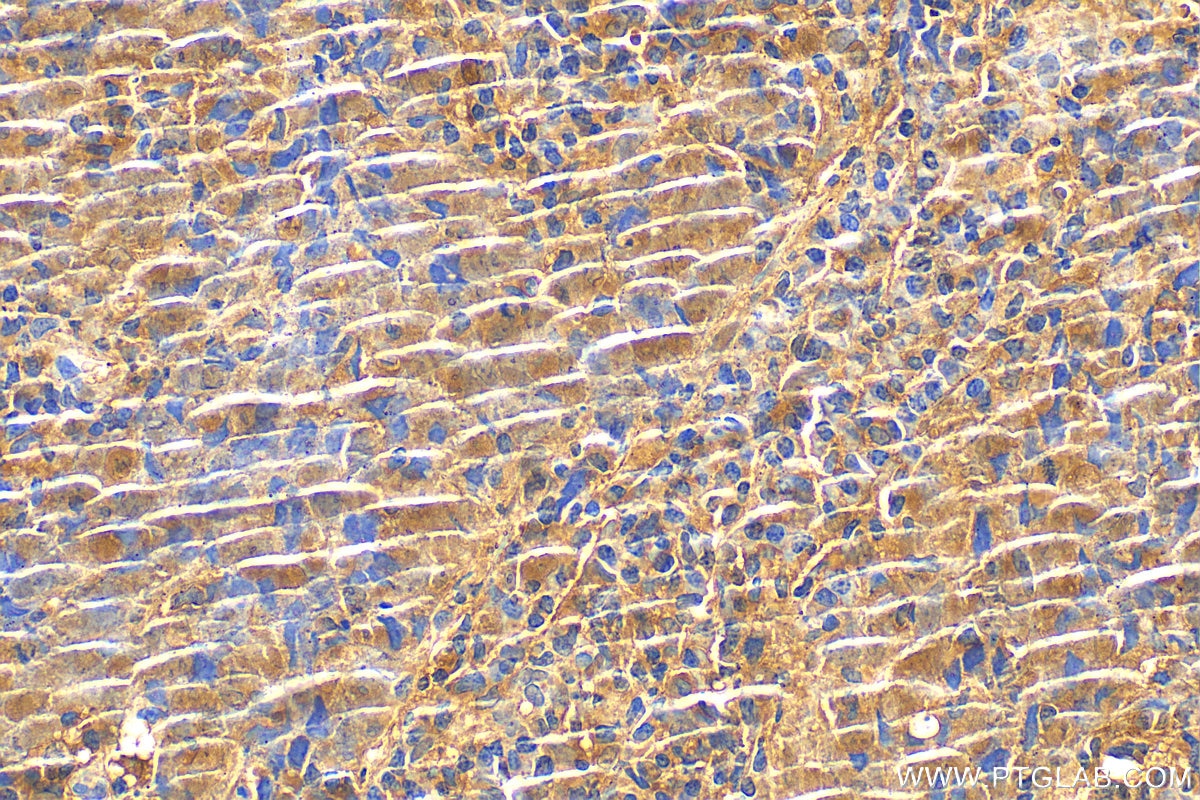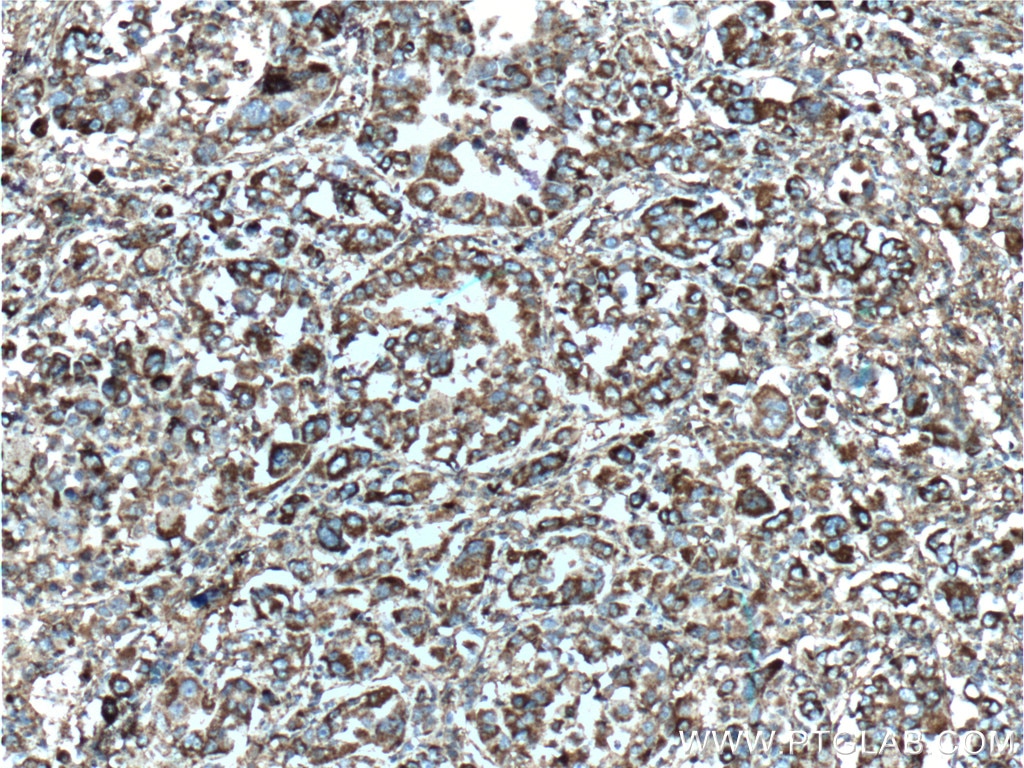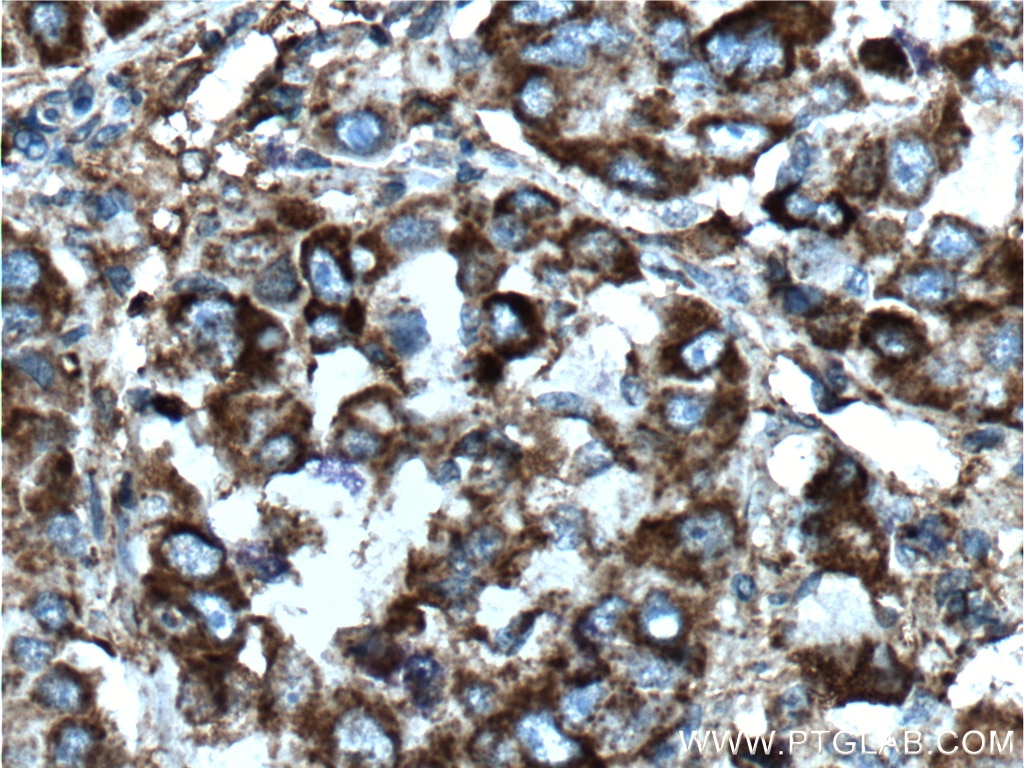Tested Applications
| Positive WB detected in | IFN gamma, LPS and Brefeldin A treated THP-1 cells |
| Positive IHC detected in | human hepatocirrhosis tissue, human liver cancer tissue, human nasopharyngeal carcinoma tissue, human ovary tumor tissue Note: suggested antigen retrieval with TE buffer pH 9.0; (*) Alternatively, antigen retrieval may be performed with citrate buffer pH 6.0 |
Recommended dilution
| Application | Dilution |
|---|---|
| Western Blot (WB) | WB : 1:500-1:2000 |
| Immunohistochemistry (IHC) | IHC : 1:200-1:800 |
| It is recommended that this reagent should be titrated in each testing system to obtain optimal results. | |
| Sample-dependent, Check data in validation data gallery. | |
Published Applications
| KD/KO | See 2 publications below |
| WB | See 20 publications below |
| IHC | See 31 publications below |
| IF | See 13 publications below |
Product Information
10937-1-AP targets CXCL10/IP-10 in WB, IHC, IF, ELISA applications and shows reactivity with human samples.
| Tested Reactivity | human |
| Cited Reactivity | human, mouse, rat |
| Host / Isotype | Rabbit / IgG |
| Class | Polyclonal |
| Type | Antibody |
| Immunogen |
CatNo: Ag1369 Product name: Recombinant human CXCL10 protein Source: e coli.-derived, PGEX-4T Tag: GST Domain: 1-98 aa of BC010954 Sequence: MNQTAILICCLIFLTLSGIQGVPLSRTVRCTCISISNQPVNPRSLEKLEIIPASQFCPRVEIIATMKKKGEKRCLNPESKAIKNLLKAVSKERSKRSP Predict reactive species |
| Full Name | chemokine (C-X-C motif) ligand 10 |
| Calculated Molecular Weight | 11 kDa |
| Observed Molecular Weight | 11 kDa |
| GenBank Accession Number | BC010954 |
| Gene Symbol | CXCL10 |
| Gene ID (NCBI) | 3627 |
| RRID | AB_2088002 |
| Conjugate | Unconjugated |
| Form | Liquid |
| Purification Method | Antigen affinity purification |
| UNIPROT ID | P02778 |
| Storage Buffer | PBS with 0.02% sodium azide and 50% glycerol, pH 7.3. |
| Storage Conditions | Store at -20°C. Stable for one year after shipment. Aliquoting is unnecessary for -20oC storage. 20ul sizes contain 0.1% BSA. |
Background Information
CXCL10 (also known as IP-10) is a member of the CXC chemokine family which binds to the CXCR3 receptor to exert its biological effects. CXCL10 is a 12-kDa protein and constitutes two internal disulfide cross bridges. The predicted signal peptidase cleavage generates a 10-kDa secreted polypeptide with four conserved cysteine residues in the N-terminal. The CXCL10 gene localizes on chromosome 4 at band q21, a locus associated with an acute monocytic/B-lymphocyte lineage leukemia exhibiting translocation of t (4; 11) (q21; q23). CXCL10 mediates leukocyte trafficking, adaptive immunity, inflammation, haematopoiesis and angiogenesis. Under proinflammatory conditions CXCL10 is secreted from a variety of cells, such as leukocytes, activated neutrophils, eosinophils, monocytes, epithelial cells, endothelial cells, stromal cells (fibroblasts) and keratinocytes in response to IFN-γ.
Protocols
| Product Specific Protocols | |
|---|---|
| IHC protocol for CXCL10/IP-10 antibody 10937-1-AP | Download protocol |
| WB protocol for CXCL10/IP-10 antibody 10937-1-AP | Download protocol |
| Standard Protocols | |
|---|---|
| Click here to view our Standard Protocols |
Publications
| Species | Application | Title |
|---|---|---|
Cancer Lett PARP inhibitor plus radiotherapy reshape the immune suppressive microenvironment and potentiate the efficacy of immune checkpoint inhibitors in tumors with IDH1 mutation | ||
J Mater Chem B Magnetic hyperthermia induces effective and genuine immunogenic tumor cell death with respect to exogenous heating | ||
Front Immunol LRPPRC facilitates tumor progression and immune evasion through upregulation of m6A modification of PD-L1 mRNA in hepatocellular carcinoma | ||
Cancer Commun (Lond) KRAS-G12D mutation drives immune suppression and the primary resistance of anti-PD-1/PD-L1 immunotherapy in non-small cell lung cancer. | ||
CNS Neurosci Ther Melatonin Alleviates Behavioral and Neurodevelopmental Abnormalities in Offspring Caused by Prenatal Stress | ||
World J Gastroenterol Histone deacetylases 10 as a prognostic biomarker correlates with tumor microenvironment and therapy response in colorectal cancer |
Reviews
The reviews below have been submitted by verified Proteintech customers who received an incentive for providing their feedback.
FH Federica (Verified Customer) (11-07-2023) | I used Alkaline Phospatase Dako kit and Antigen Retrival PH10
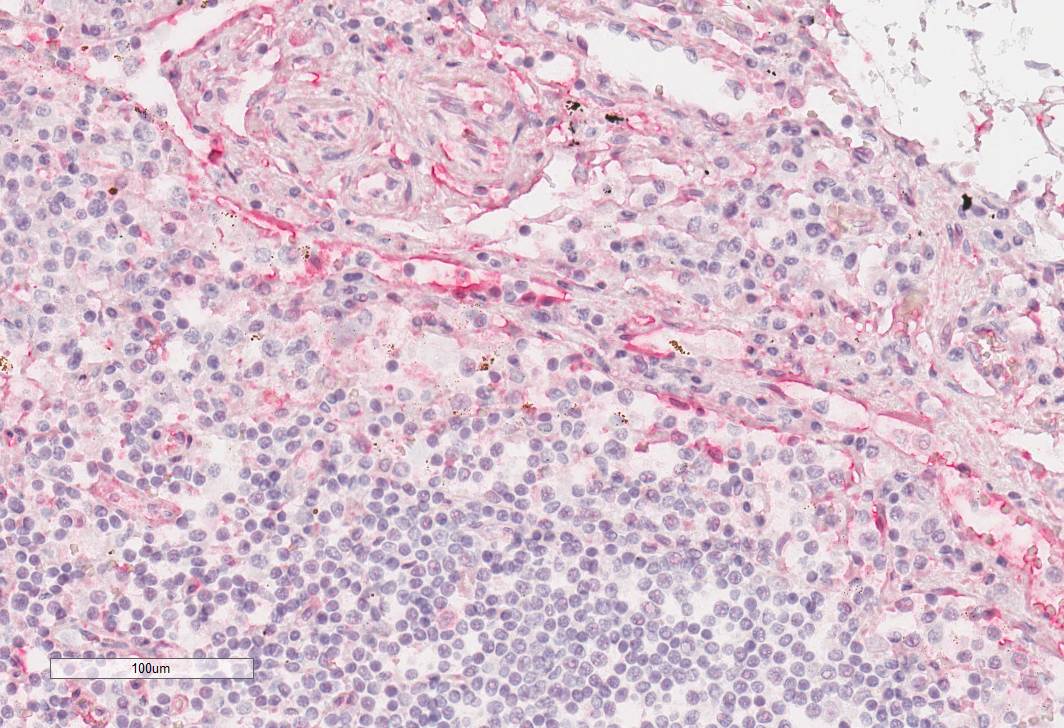 |

